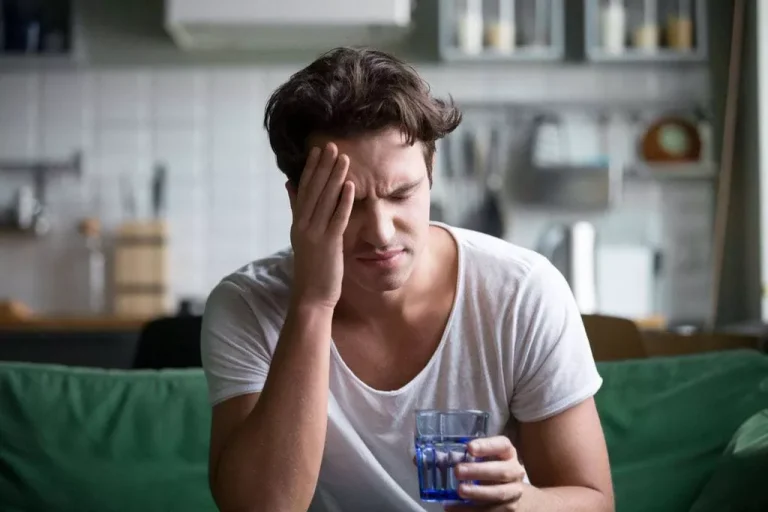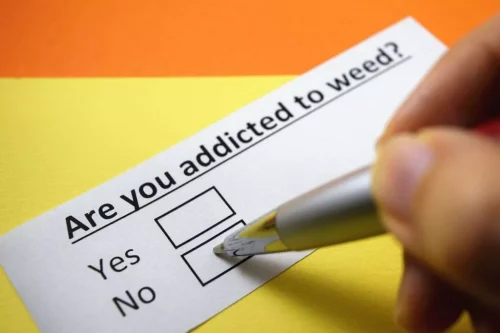
You might not recognize how much you drink or how many problems in your life are related to alcohol use. Listen to relatives, friends or co-workers when they ask you to examine your drinking habits or to seek help. Consider talking with someone who has had a problem with drinking but has stopped. If you stop drinking completely, one of the first things you notice should be improved energy levels, better sleep and finding it easier to wake up in the morning. Whether you are stopping for good, or just having some time off, it’s a good idea to be prepared for the changes you could see.

Take some time to explore your relationship with alcohol
That number dropped to 50% when the participants went home, and many reported that their sleep quality got better after treatment. According to the National Survey on Drug Use and Health, 9.2 million U.S. adults had both mental health disorders and a substance use disorder in 2018, yet nearly 60% did not get treatment. Quitting alcohol won’t just protect your physical health—it can also improve your mental well-being. Alcoholic beverages are a source of added sugar and empty calories.
- Behavioral interventions, medications, and social support can all play a role in your alcohol recovery.
- Over time, the brain can actually get used to the effects of alcohol, causing it to work harder and cause unpleasant or even dangerous withdrawal symptoms like tremors and heart palpitations.
- You may not be able to reverse the course of cirrhosis, but deciding to stop drinking alcohol can add years to your life.
- One margarita may contain 300 calories or more—mostly from sugar.
- Withdrawal symptoms should also have noticeably subsided at this point, freeing you to relish in your improved mental clarity and sharpness.
- One of the most profound ways that alcohol affects you is through what it does to your body.
- Westman, J.; Wahlbeck, K.; & et al. “Mortality and life expectancy of people with alcohol use disorder in Denmark, Finland and Sweden.” Acta Psychiatrica Scandinavica.
Alcohol and Bupropion: 4 Things to Know About This Risky Combination
- If it’s winter, you may notice fewer colds than in the past, but in warmer months, the changes may be more subtle, but that doesn’t mean they aren’t there.
- Withdrawal symptoms can start about 8 hours after your last drink.
- Dr. Belani is currently a member of the Society of General Internal Medicine and American Academy of HIV Medicine.
- While it has been suggested that one or two drinks per day may have health benefits, one meta-analysis found that even moderate intake has serious health risks.
- Alcohol can worsen depression and be an emotional crutch, making it difficult to experience true happiness outside of drinking.
In the third week, if hypertension or high blood pressure is an issue, you may notice lower blood pressure. You might find yourself at this point contemplating the broader effects of alcohol, such as its effects on your health, your mental well-being, work, personal relationships, and more. McMahon says quitting alcohol might what happens when you stop drinking cause some sleep disturbances or insomnia initially, but sleep quality and quantity will improve with continued abstinence. “Proper sleep helps us maintain physical, mental and emotional health, so it’s an important consideration,” she says. “When you quit drinking, your immune system gets a much-needed boost,” says Andrews.
Improved energy levels and better sleep
All the same, “a quick drink” often turns into three or four drinks. When you’re having a good time, you find it hard to stop, especially in the company of friends having the same amount. At The Recovery Village Atlanta, we are committed to helping people like you or your loved one recover completely from alcohol addiction as safely and comfortably as possible. We aim to help you stop using alcohol and empower you to maintain lifelong sobriety.Quitting alcohol may seem daunting; however, you can do it! You don’t have to take this journey alone; we are here to help you through each step of the way.
Being addicted to alcohol means that it has control and power over you. For people at low risk of complications, an office visit to your primary care provider, along with at-home monitoring and virtual office visits, may suffice. People at high risk of complications should enter a short-term in-patient detox program. ‘In the kidneys, alcohol increases water loss by suppressing the hormone vasopressin, which helps you to reabsorb water,’ adds Dr Jack. The effect is that skin cells dry out, leading to more prominent lines.
Up your vitamin intake

It’s important to remember that they are only temporary and will usually subside within a few days. For individuals with severe alcohol dependence, however, withdrawal symptoms can be more severe and may require medical attention. The first day is always the hardest, but it’s also an important milestone.
Here’s what’s happens to your skin when you stop drinking alcohol for Dry Jan…
Stopping alcohol can reduce many of these risks, potentially adding decades to your life expectancy. Lots of people with alcohol use disorder need professional help to quit drinking. But you’ll need to be honest about how much you drink and how often. It’s no secret that alcohol plays a significant role in your liver health. Chronic and excessive alcohol consumption can destroy liver cells, which are necessary for filtering out harmful substances in our body (the liver is our built-in detoxifier). “Fatty liver is a common phenomenon in individuals who drink heavily and regularly, leading to cirrhosis and end-stage liver disease,” says Mary Wirtz, MS, RDN, CSSD.

What Alcohol Does to Your Body
So, giving up alcohol can help you to avoid these potentially deadly diseases. Some people who stop drinking may experience delirium tremens (DT). This condition is serious and may lead to symptoms such as high blood pressure, tremors, and seizures. Volpicelli says that some of the negative effects of alcohol on mental health can be reversed if you stop drinking. Withdrawal symptoms can start about 8 hours after your last drink. Some of the less intense symptoms may last for a few weeks before they improve.
While some of these changes can be uncomfortable for some time, they will eventually begin to improve the longer you abstain from alcohol use. Alcohol has many negative effects on your physical and mental health. The benefits of quitting drinking are often apparent soon after you stop, and will only continue to improve the longer you abstain from drinking. If you are thinking about quitting drinking, talk to your healthcare provider.
